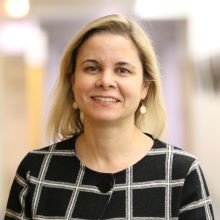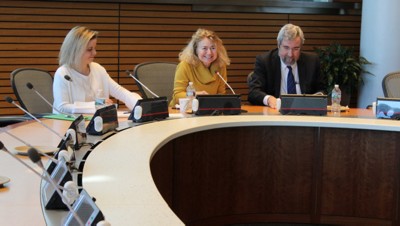Ana Margarida Fernandes is a Lead Economist in the Trade and International Integration Unit of the Development Research Group at the World Bank. She joined the World Bank as a Young Economist in 2002. Her research examines the consequences of openness to trade and FDI for firm-level productivity, innovation and quality upgrading. Her work has also focused on the impact evaluation of trade-related policy interventions such as export promotion and customs reforms around the globe (Albania, Serbia, Madagascar, Tunisia). Since 2011 she has been managing the Exporter Dynamics Database project and studying the links between exporter growth and dynamics, development, policies, and shocks. She is currently working on deep trade agreements and on corruption in customs and tax evasion.
MORE FROM Ana Margarida Fernandes
- Publications
- Video
- Blogs

